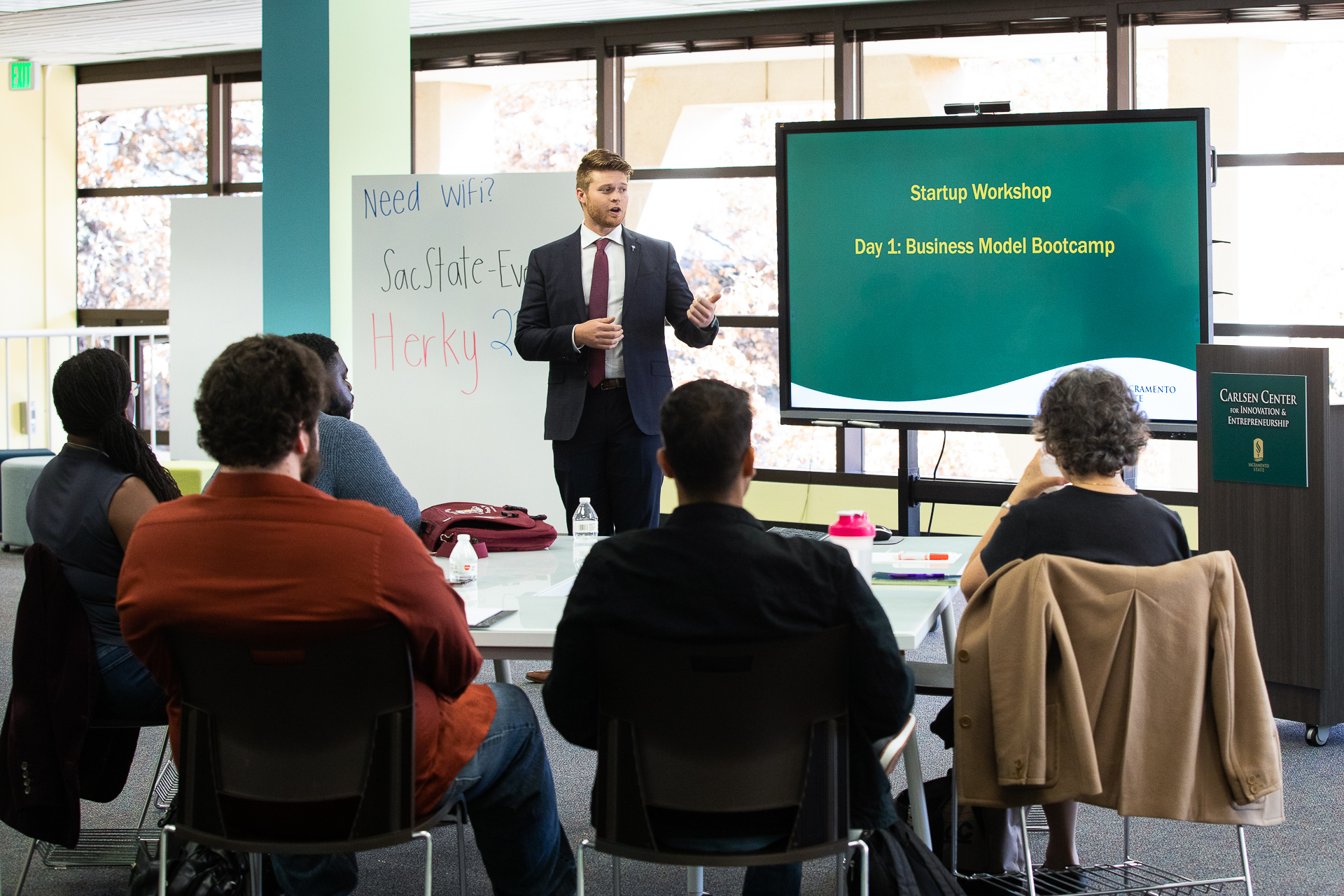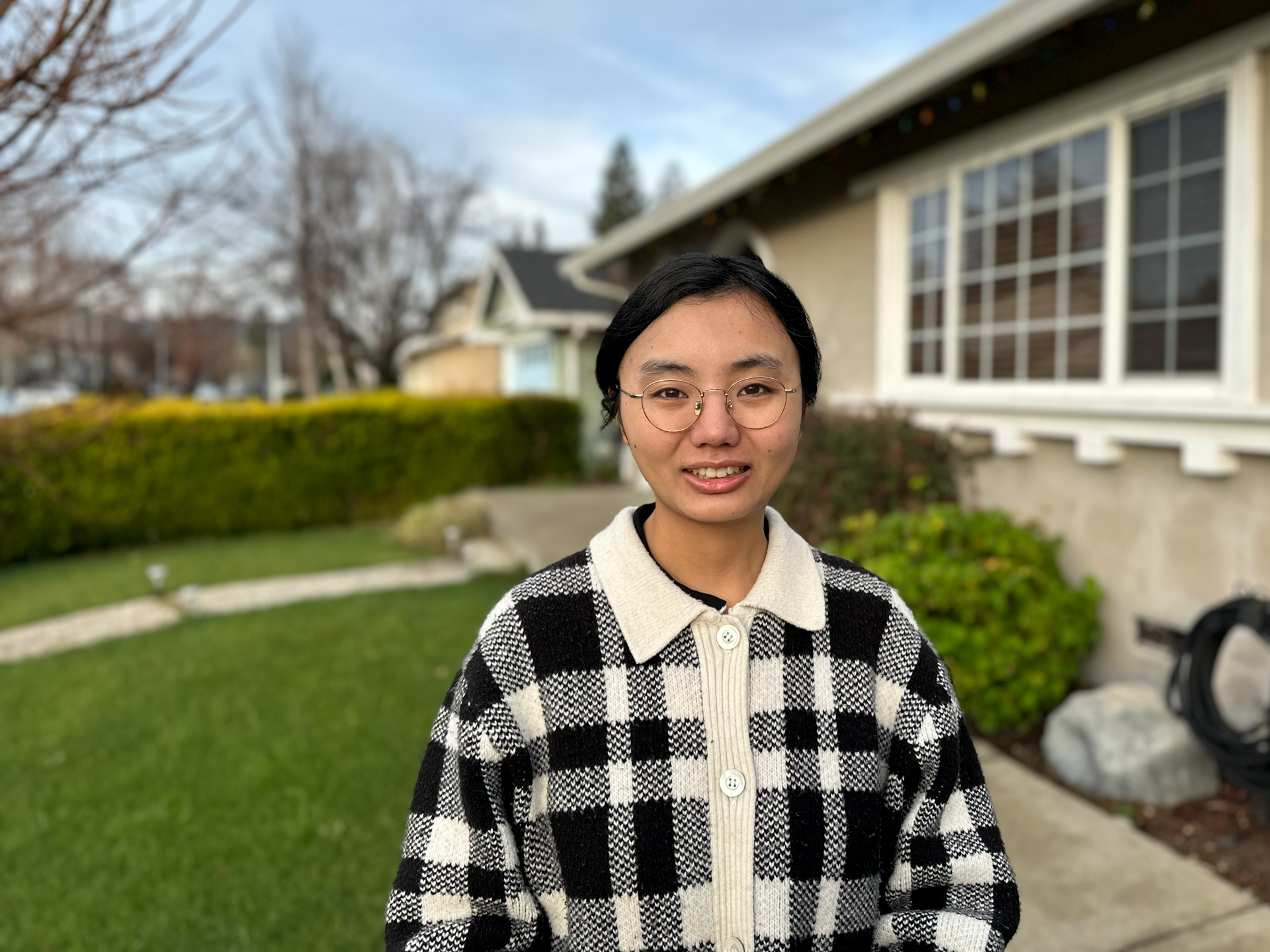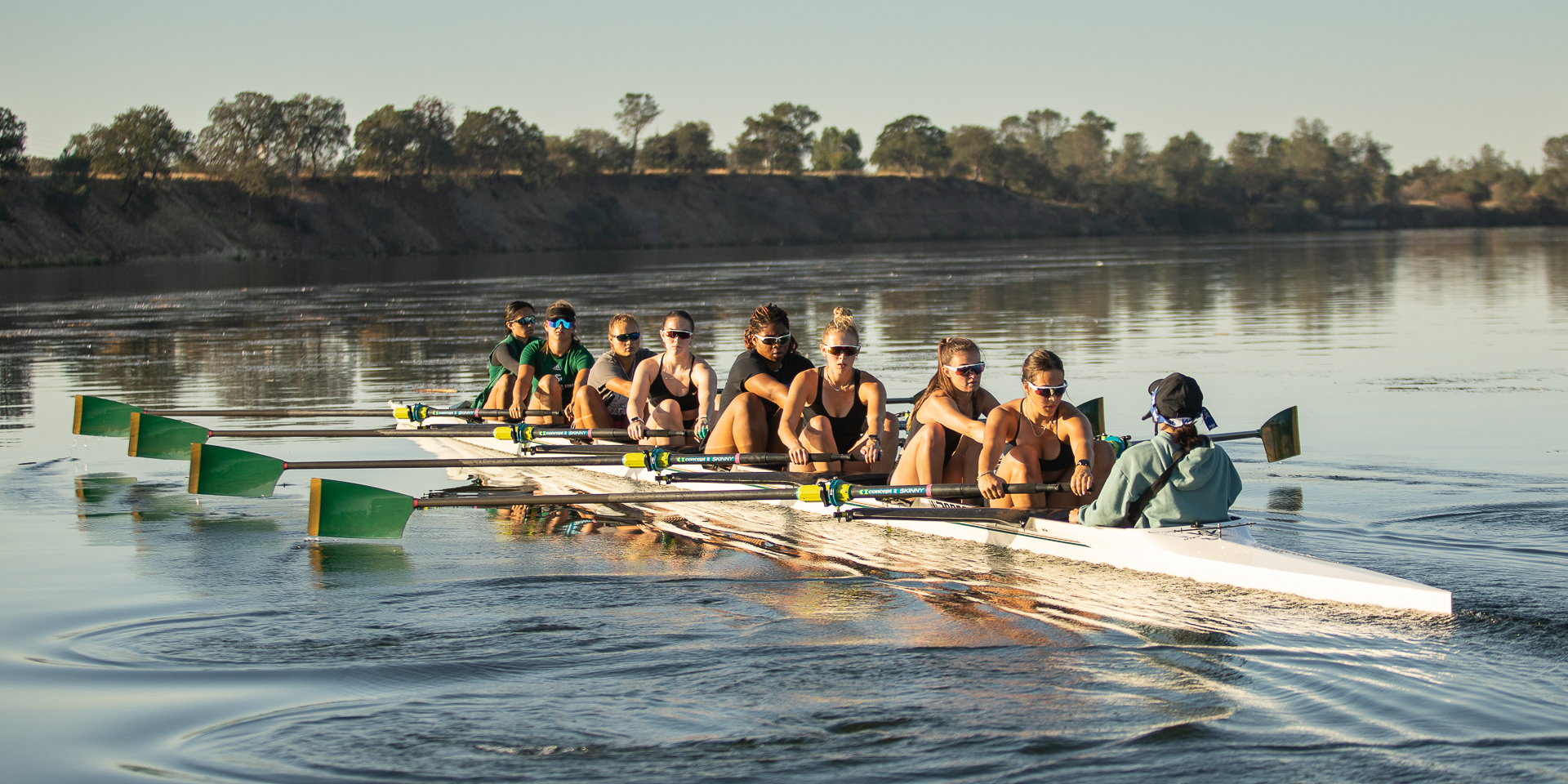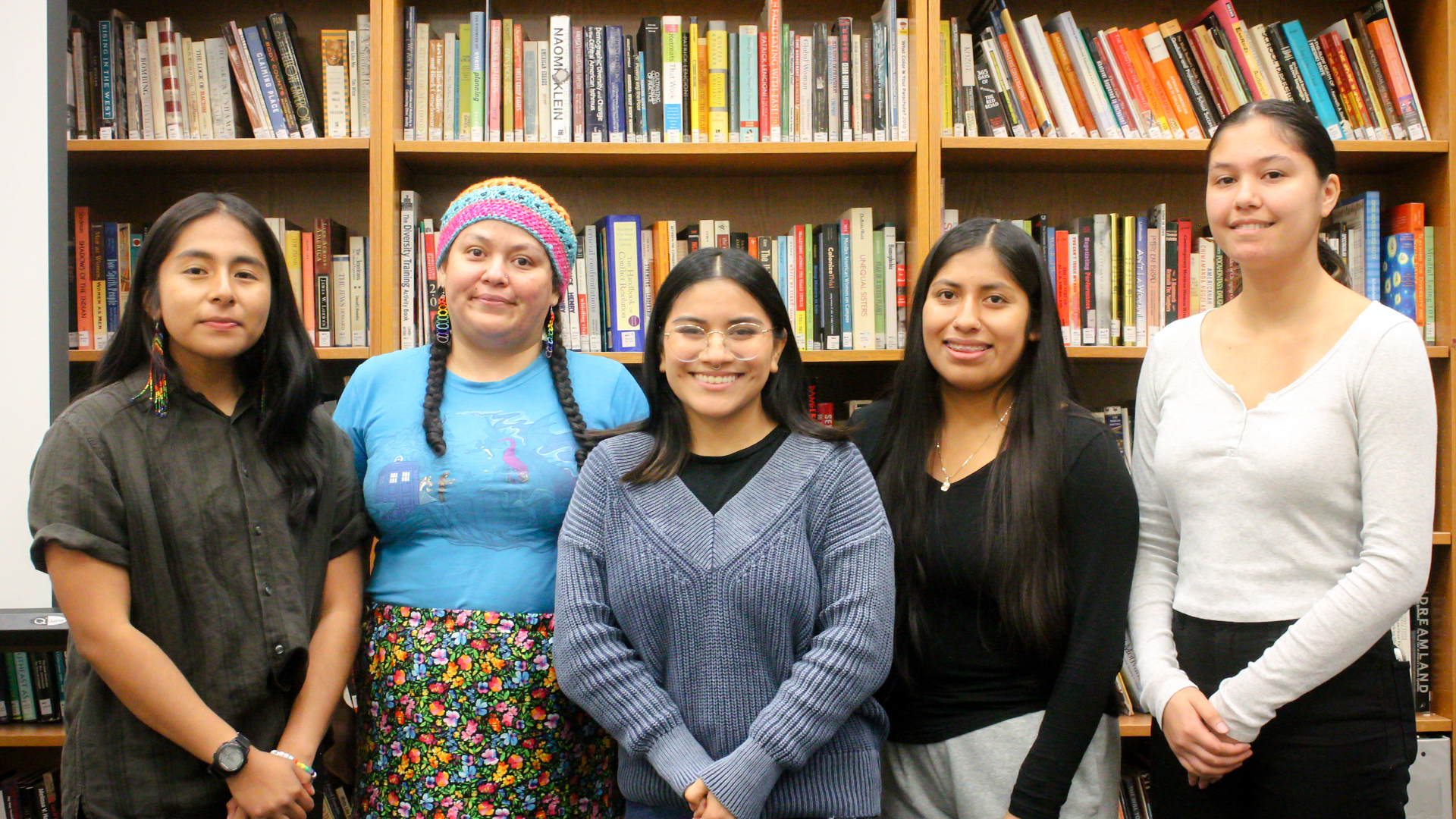Story Content
Carlsen Center co-sponsoring pitch competition to find innovative ways to reduce waste

February 01, 2023
Innovators with ideas for turning waste into marketable products can compete for $20,000 in a new pitch competition put on by the Carlsen Center for Innovation and Entrepreneurship at Sacramento State and the Western Placer Waste Management Authority (WPWMA).
The Circular Economy Innovation Competition aims to find innovations and technologies that will reduce landfill waste and greenhouse emissions by repurposing materials people throw away.
“The idea is to work with either existing operations or new entrepreneurs to find ready uses for some of the products we can pull out of our waste stream,” WPWMA Program Manager Eric Oddo said. “Hopefully, we can identify new markets and new technologies for materials that historically have not had a market value.”
The WPWMA will provide $20,000 in cash awards, while the Carlsen Center will offer mentorship opportunities to pilot new technology, research, or business.
“Some of the ideas may be newer concepts that need to be tested and validated,” Carlsen Center Executive Director Cameron Law said. “The pitch competition provides a cash award to explore these ideas and also potentially the space to pilot those innovations, which will hopefully lead to a lasting partnership.”
The WPWMA serves about 400,000 customers in unincorporated Placer County as well as the cities of Roseville, Lincoln, and Rocklin. Unlike many agencies, the WPWMA does not have an upfront recycling system with blue bins customers can use to sort their own trash.
“There’s a lot of interest in figuring out how to use and manage our resources more sensitively and more economically and to localize some of these opportunities.” -- Eric Oddo, Western Placer Waste Management Authority program manager
Instead, it operates a materials recovery facility, or MRF, where items that can be recycled or composted are diverted from mixed waste. Whatever can’t be used is sent to the agency’s landfill.
“Everything is in one stream, which affords us the opportunity to mine waste for whatever products we can find that are of value,” Oddo said.
But finding buyers for recyclable materials has become increasingly difficult in the volatile international market.
For decades, the United States shipped its recyclable materials to countries such as China. That market shut down, however, when China implemented restrictions on recyclables, including mixed paper and plastics.
“We’ve learned over time that what we’re able to recycle is predicated on what we’re able to market,” Oddo said. “If we can have those end markets right next to us, it improves the financial picture considerably because it takes transportation out of the mix.
“It also creates stability to have a local market for our products.”
A growing number of businesses are moving toward a “circular economy” model, pitch organizers said, a model that goes beyond recycling and focuses on how goods can be designed, produced and delivered in a way that limits the impact on the environment.
A circular economy can also mean increased revenue. For instance, a local or regional market for recyclable materials means fewer trucks on the road, lowering transportation costs.
“Consumers are more and more conscious of the goods they’re purchasing and the environmental impacts they have,” Law said. “If some of the raw materials are cheaper than buying other materials, that’s obviously an economic advantage to the entrepreneur as well.”
The WPWMA has the land and infrastructure for companies to test emerging technologies, and has already worked with businesses to pilot studies on using wood waste to produce bio oil and biochar.
“This is all very fresh, but we’re starting to see a lot of traction in this area,” Oddo said. “There’s a lot of interest in figuring out how to use and manage our resources more sensitively and more economically and to localize some of these opportunities.”
The Carlsen Center and WPWMA looked to a circular economy incubator collaboration between Arizona State University and the city of Phoenix as a model for the new pitch competition.
The WPWMA facilities are located less than a mile from the future site of Placer Center, Sac State’s planned satellite campus in Placer County.
“There’s a natural connection, especially from a research standpoint, but also attracting innovations and entrepreneurs to the campus,” Law said.
“The vision is to be a hub for circular economy activity … We look forward to continuing to grow our partnership and hopefully create jobs while looking to solve the problems around waste and making a greater environmental impact in a positive way.”
The deadline to apply for the Circular Economy Innovation Competition is 11:59 p.m. Feb. 10. Twelve to 16 semi-finalists will be selected and asked to submit a video. Up to eight finalists will compete in person on April 19.
“I’m very excited about the energy the Carlsen Center has brought to this concept, and I can’t wait to see what happens in the pitch competition,” Oddo said. “I know the future is extremely bright for this region and for the environment.”
Media Resources
Faculty/Staff Resources
Looking for a Faculty Expert?
Contact University Communications
(916) 217-8366
communications@csus.edu


